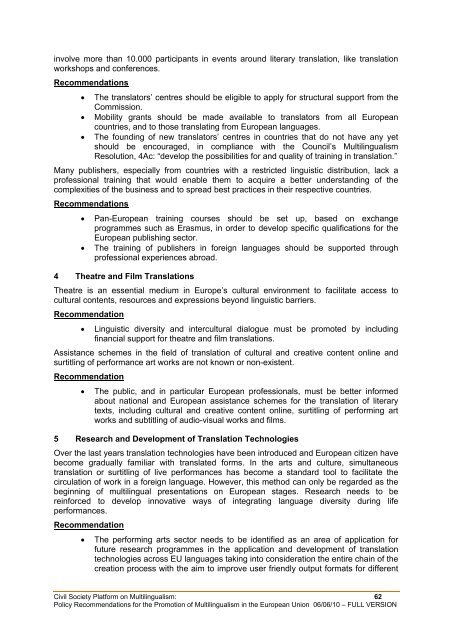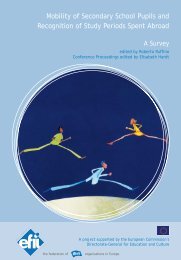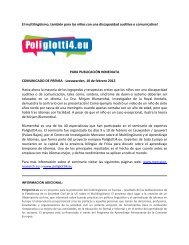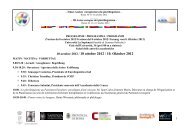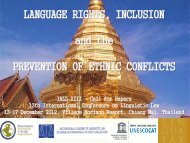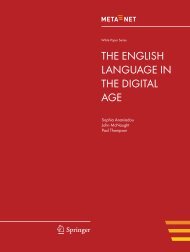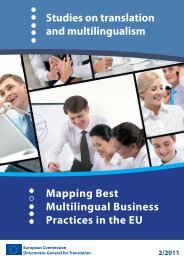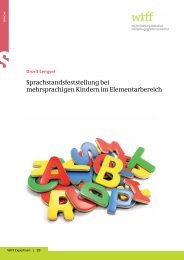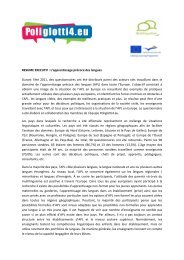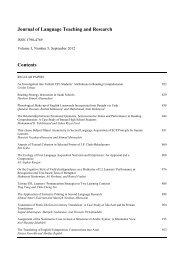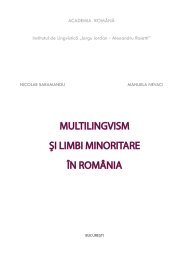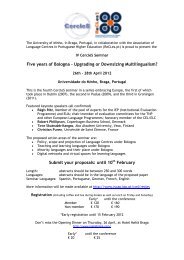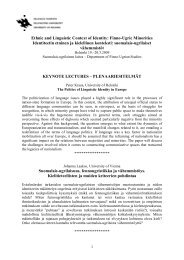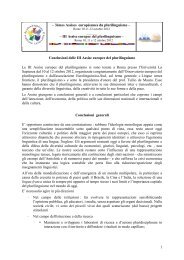FULL VERSION - European Commission - Europa
FULL VERSION - European Commission - Europa
FULL VERSION - European Commission - Europa
Create successful ePaper yourself
Turn your PDF publications into a flip-book with our unique Google optimized e-Paper software.
involve more than 10.000 participants in events around literary translation, like translationworkshops and conferences.Recommendations The translators’ centres should be eligible to apply for structural support from the<strong>Commission</strong>. Mobility grants should be made available to translators from all <strong>European</strong>countries, and to those translating from <strong>European</strong> languages. The founding of new translators’ centres in countries that do not have any yetshould be encouraged, in compliance with the Council’s MultilingualismResolution, 4Ac: “develop the possibilities for and quality of training in translation.”Many publishers, especially from countries with a restricted linguistic distribution, lack aprofessional training that would enable them to acquire a better understanding of thecomplexities of the business and to spread best practices in their respective countries.Recommendations Pan-<strong>European</strong> training courses should be set up, based on exchangeprogrammes such as Erasmus, in order to develop specific qualifications for the<strong>European</strong> publishing sector. The training of publishers in foreign languages should be supported throughprofessional experiences abroad.4 Theatre and Film TranslationsTheatre is an essential medium in Europe’s cultural environment to facilitate access tocultural contents, resources and expressions beyond linguistic barriers.Recommendation Linguistic diversity and intercultural dialogue must be promoted by includingfinancial support for theatre and film translations.Assistance schemes in the field of translation of cultural and creative content online andsurtitling of performance art works are not known or non-existent.Recommendation The public, and in particular <strong>European</strong> professionals, must be better informedabout national and <strong>European</strong> assistance schemes for the translation of literarytexts, including cultural and creative content online, surtitling of performing artworks and subtitling of audio-visual works and films.5 Research and Development of Translation TechnologiesOver the last years translation technologies have been introduced and <strong>European</strong> citizen havebecome gradually familiar with translated forms. In the arts and culture, simultaneoustranslation or surtitling of live performances has become a standard tool to facilitate thecirculation of work in a foreign language. However, this method can only be regarded as thebeginning of multilingual presentations on <strong>European</strong> stages. Research needs to bereinforced to develop innovative ways of integrating language diversity during lifeperformances.Recommendation The performing arts sector needs to be identified as an area of application forfuture research programmes in the application and development of translationtechnologies across EU languages taking into consideration the entire chain of thecreation process with the aim to improve user friendly output formats for differentCivil Society Platform on Multilingualism: 62Policy Recommendations for the Promotion of Multilingualism in the <strong>European</strong> Union 06/06/10 – <strong>FULL</strong> <strong>VERSION</strong>


